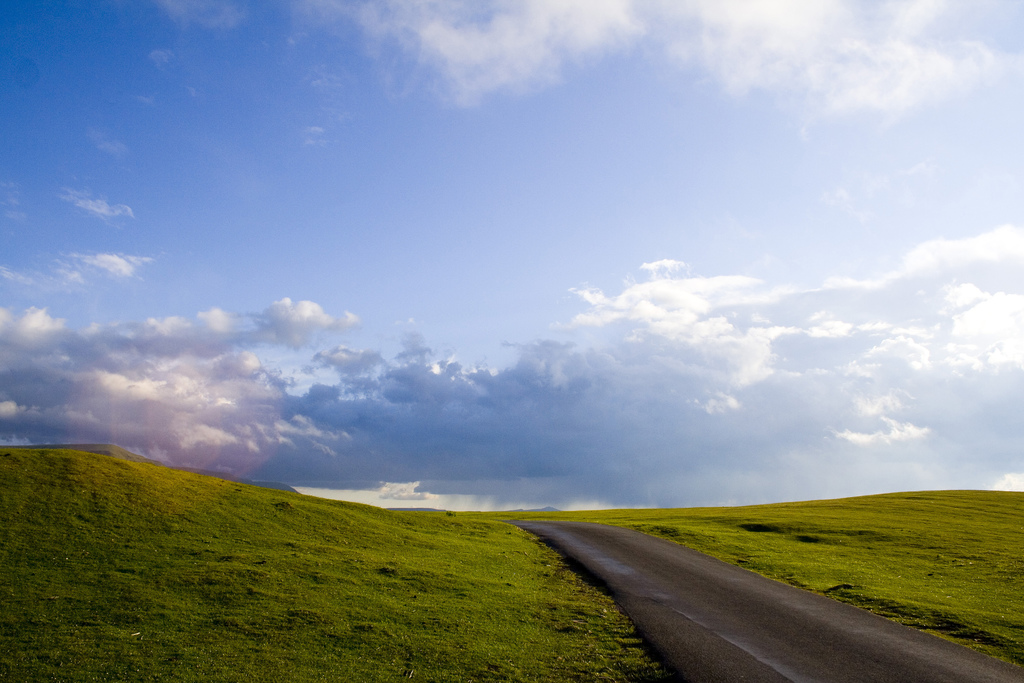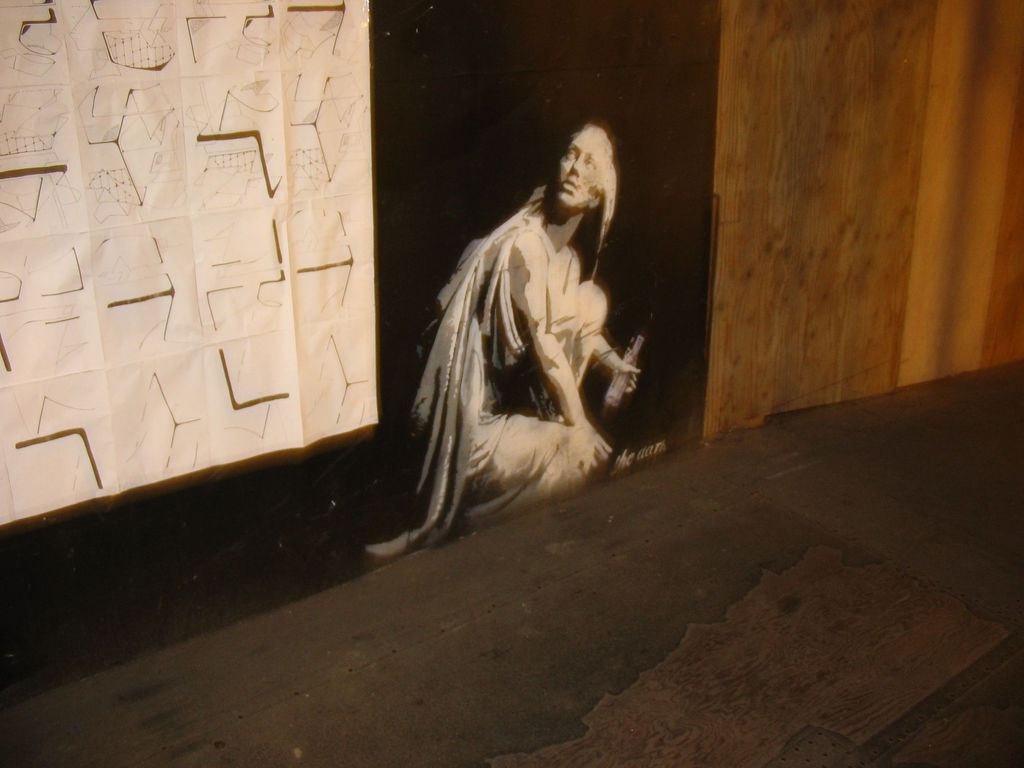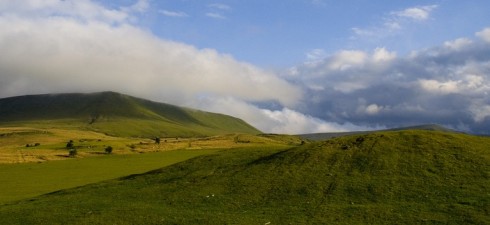
The Black Hills, Wales: near Hay-on-Wye.
It’s easy to be unconscious about our consciousness. The stories that we tell ourselves make up our world, but it’s natural to be unaware of the huge potential power that lies in exploring and examining the processes that form these stories. ‘Life is what you make it’, they say, and this utilitarian phrase suggests the depth of possibility through which our reality is filtered. We talk about ‘past, present, and future’, but these dimensions of time, I think, are more interestingly viewed through the way they all reflect on the present moment: the only moment in which we can ever actually live.
Our experience in life can be pictured as a walk across a landscape. The past is a memory: it lies behind us, and our footprints must surely record our presence there. The present moment occupies us in two kinds of task: navigating the uneven ground beneath our feet, and gazing off across the vistas that surround us. The future lies ahead, and our steps now prepare us to be there. We will be stronger, or more fatigued, based on our decisions in the present moment. The power of this metaphor, for me, lies in the perception that my mind seems to ‘stack’ my memories, imaginations and dreams in densely signifying material places. My dreams place me in my childhood homes, and the places I’ve lived, telling me that I have unfinished business there. Of course: the things that happened in those places make me who I am today, and they formed the grooves (as on vinyl) through which my thoughts now run.
To some, the power of place also can offer something ahead of endless walking and processing. ‘The West’, ‘Zion’, or a Celestial home, are places where (we’re told), even if the work continues, we’ll have finished the dirty work of cognitive dissonance and physical/mental struggle. There, consciousness will be harmonious, and we will rest from the anguish of our human condition. In this model, this is a ‘fallen’ earth, where we must walk away from Eden.
As I begin writing here on ‘Cipher’, I’m excited to join you in this place: this patch of virtual ground in the not-so ‘lone and dreary’ world, where we may walk together. I don’t know Saturday’s Warrior too well, but the title of this column also makes me think of an urban landscape, where — like in life — our explorations are hampered by the material domain set up by others. These walls can be frustrating: and yet, if we examine them, we find a message written in a code (especially for you?). My writing, like Matt’s, is intended to be suggestive rather than prescriptive. My pieces will acknowledge the gap in all communicative efforts, and invite you to ‘riff’ with us, to celebrate that space. In music, and walking, and dreaming, we feel instinctively who we are. We perceive a real immortality, that we call the soul.
;

'the Dark next to a coded message', Graffiti by the artist 'The Dark', in Vancouver. His art can be seen here: http://www.flickr.com/photos/thedark/ . Photo by Foxtongue
All artwork, unless otherwise specified, is by the author.

I really like the way you articulated this. And isn’t it interesting to see that despite the seemingly chronological or orderly way we create our narratives, they are, in fact, often fluid and not so orderly? I look forward to joining you here.
Thanks, Heidi. I used this metaphor as a way of trying to connect the different kinds of spaces in my mind, but yes – these categories blur into each other so much. And it’s those intersections and crossings-over that really interest me, too. Like when we see something during the day that brings back a scene from a dream… or we realise that what we thought of as a memory has been reprocessed to include dreams, or even fantasies. All these things seem to confirm to me that the mental spaces and places are more resonant than the chronology of events that helped to construct them. The places are what remain and resound.
Your vinyl analogy speaks to me. Also love you alluding to resting from our toil and labor. Looking forward to settling in with you in your new home on D&S.
The vinyl analogy came to me from David Lynch: it’s present in the film ‘Inland Empire’ (I mention it in my review), and in many of his movies. I think there’s a lot there, though. The first record players allowed you to record your own voice in wax on small cylinders, and then play it back… the grooves are physically and directly, an imprint of sound. I also like the idea that the same events come round and round, and exist in proximity to other events… that life is a ‘widening gyre’ (Yeats), that brings deeper and deeper significance and poetry. Our past lies at the centre. And occasionally, a shock causes our mind to ‘skip’ back or forward in time… it’s all there: but not all accessible.
What were your thoughts about the idea of a ‘place of rest’, Claire? I’m very interested in how this appeals, or is processed, by our readers.